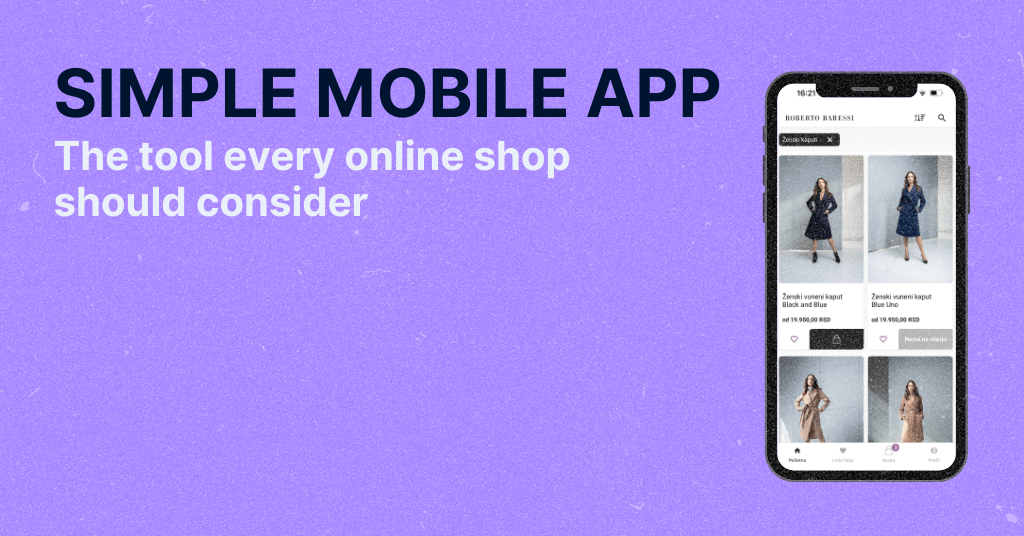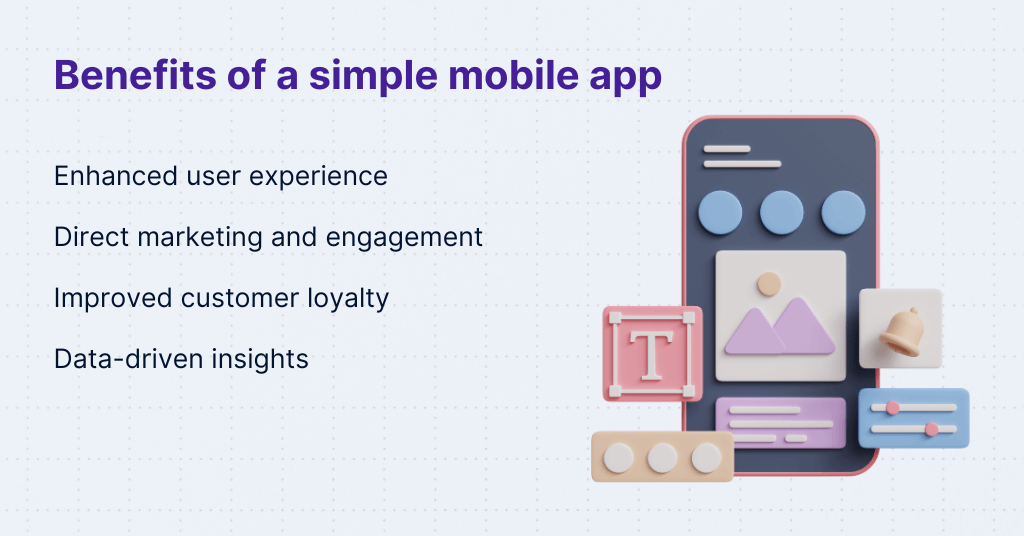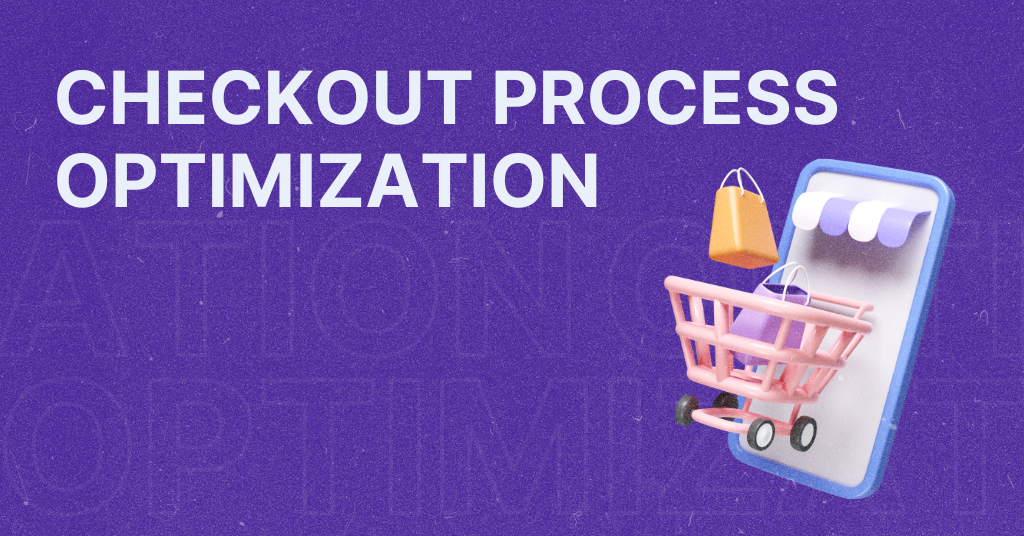
Simple mobile app – The tool every online shop should consider
Mobile apps have emerged as game-changers. Let’s see why mobile apps are crucial for online retailers and how a simple mobile app can transform your online shop’s success.
What do we mean by simple mobile app?
A “simple mobile app” refers to a user-friendly and straightforward mobile application designed to provide customers with an effortless and intuitive experience. In this context, “simple” encapsulates an interface that is easy to navigate, making it accessible and enjoyable for customers of all technological backgrounds.
Such apps prioritize clear, concise functionalities that cater to users’ needs without overwhelming them with unnecessary complexities. A simple mobile app is a solution that customers not only want, but also need, as it empowers them to engage with an online shop’s offerings, explore products, and make purchases in a seamless manner.
Why are mobile apps important?
With phones at our fingertips, mobile apps have become essential for e-commerce. This shift is undeniable, as more than half of the global population relies on mobile devices for shopping. Failing to adapt means missing out on a massive market. If you’re in e-commerce, you shouldn’t keep your eyes closed for bigger opportunities.

Benefits of simple mobile app
- Enhanced user experience
Mobile apps redefine the shopping experience by offering users a seamless and intuitive journey. With streamlined navigation and quick loading times, customers can effortlessly explore your products, categories, and promotions. Tapping into the power of touch gestures, swipes, and clear icons, mobile apps make every interaction smooth and efficient.
- Direct marketing and engagement
Push notifications and in-app messages act as direct lines of communication with your customers. Push notifications provide timely alerts about new arrivals, ongoing promotions, or exclusive deals, even when the app is not open. These notifications grab attention, encouraging users to engage with your shop.
In-app messages, on the other hand, enable personalized interactions, guiding users through their shopping journey. This direct engagement not only keeps customers informed but also creates a sense of connection, increasing their affinity for your brand.
- Improved customer loyalty
Loyalty programs embedded within mobile apps hold the potential to revolutionize customer retention. By offering rewards, discounts, or exclusive content to loyal users, you incentivize repeat business. Customers appreciate feeling valued, and loyalty programs enhance that sentiment. Whether it’s unlocking special discounts or earning points for each purchase, these initiatives create a bond between your shop and your customers. Over time, this connection solidifies into brand loyalty, prompting customers to return to your shop over competitors.
- Data-driven insights
A major advantage of mobile apps is their ability to gather valuable user data. This data offers insights into customer behavior, preferences, and shopping patterns. From which products users frequently browse to the time they spend on the app, this information paints a clear picture of their interactions.
Armed with such insights, businesses can make informed decisions regarding product offerings, marketing strategies, and user experience improvements. Data-driven decision-making ensures that you’re catering to your customers’ actual needs and desires.
What should you pay attention to while creating your mobile app?
- Define purpose and features
When defining the purpose and features of your mobile app, clarity is key. Outline your app’s goals—whether it’s facilitating purchases, offering a loyalty program, or providing personalized recommendations. The features you select should align seamlessly with these goals, ensuring a cohesive user experience. Crucially, simplicity should be at the forefront. By opting for functionalities that enhance the app’s core purpose without overwhelming users, you create an app that’s intuitive and user-friendly.
- User-centric design
Designing your app with users in mind is paramount. User-centric design means crafting an interface that’s easy to navigate, intuitive, and visually appealing. Clean interfaces reduce the cognitive load on users, enabling them to find what they need effortlessly. Consistent branding, incorporating your shop’s colors, logo, and overall aesthetic, reinforces brand recognition. This design approach ensures that your app not only meets user expectations but also enhances their connection with your brand.
- Choose development approach
The choice between native and hybrid app development hinges on your specific requirements. Native apps are built for specific platforms (iOS or Android) and offer top-notch performance and user experience. On the other hand, hybrid apps work across platforms and can be more cost-effective. Carefully evaluate your needs and resources before making this decision. Prioritize an approach that aligns with your long-term goals and the experience you want to deliver to your users.
- Integration with e-commerce platform
For a simple mobile app to truly enhance your online shop, it must seamlessly integrate with your existing e-commerce system. This integration ensures that product listings, pricing, and inventory are up to date in real-time. When customers can transition seamlessly from browsing on your website to using your app, it fosters a consistent shopping experience that builds trust and encourages conversions.
Where does your app journey begin?
Crafting a successful mobile app necessitates thorough planning to ensure every aspect is considered. This planning phase involves creating a clear development roadmap that outlines the journey from concept to execution. This roadmap acts as a guiding framework, detailing the various stages, milestones, and tasks required for the app’s creation.
Once the roadmap is in place, a crucial decision lies ahead: whether to collaborate with experts or utilize DIY platforms for app development. Collaborating with seasoned professionals brings industry insights and technical expertise to the table, ensuring a well-polished final product. On the other hand, DIY platforms offer a hands-on approach, allowing you to bring your vision to life independently. The choice hinges on your comfort level, resources, and desired level of customization.
The dark side of mobile app
Developing a simple mobile app comes with its fair share of challenges, which are all part of the process. From designing a user-friendly interface to ensuring smooth navigation, these hurdles present opportunities to improve the app’s overall user experience. Technical complexities may arise, such as optimizing performance across different devices and addressing data security concerns. By addressing these challenges head-on, you refine the app’s functionality and lay the foundation for a smoother user journey.
Seizing the future
In a world where convenience rules, a simple mobile app becomes your shop’s digital doorway. The benefits—enhanced user experiences, direct engagement, improved loyalty, and data insights—are too significant to ignore. Embrace mobile app technology to bridge the gap between your shop and modern shoppers, showing your commitment to innovation.
Let’s book a 30-min mobile strategy session and give your shop a boost.
Let’s book a 30-min mobile strategy session and give your shop a boost.


